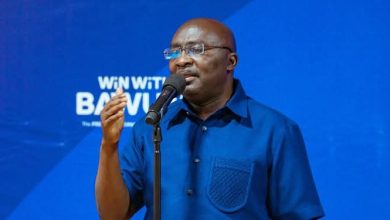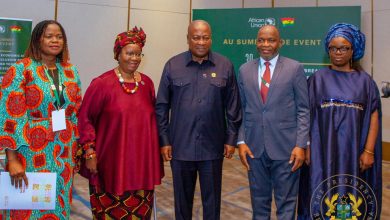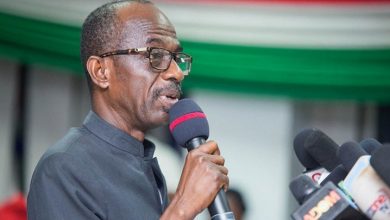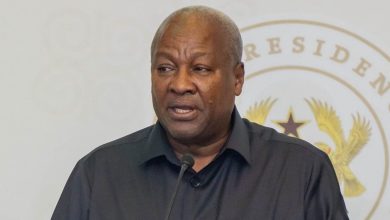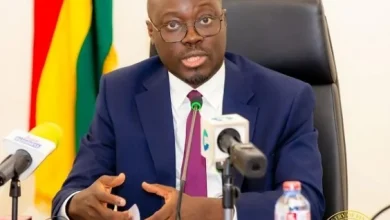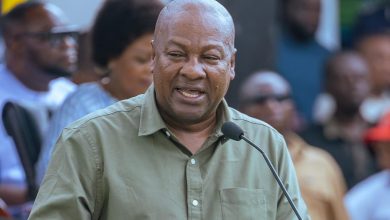Akufo-Addo Inaugurates Reconstituted MIDA Board
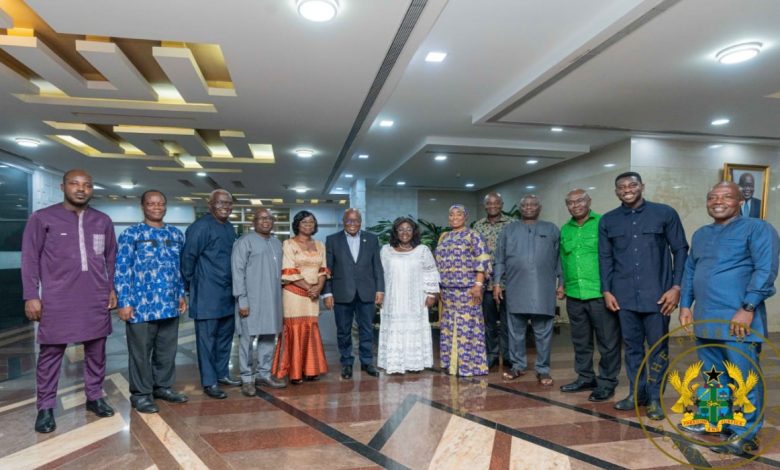
The President of the Republic, Nana Addo Dankwa Akufo-Addo, has on Wednesday, 7th June, 2023, sworn into office the newly constituted board of the Millennium Development Authority in Accra.
Following the completion of the Ghana Power Compact and the end of the term of office of the previous board in October last year, the new board will be the Coordinating entity for the Economic Enclaves Project and is expected, to adopt and follow the same systematic approaches to project management that characterized the implementation of the Compact projects.
With the renowned Ghanaian Zoologist, Prof Yaa Ntiamoa Baidoo as Chairperson, membership of the board also includes Mr Martin Esson Benjamin, Chief Executive Officer of MiDA, Ken Nana Yaw Ofori-Atta, Minister for Finance, Hon. Bryan Acheampong, Minister of Food and Agriculture, Hon. Dan Botwe, Minister for Local Government, Decentralisation and Rural Development, Hon. Abudu Lariba Zuweira, Minister for Gender Children and Social Protection, Hon. Kobina Tahiru Hammond, Minister of Trade.
The rest are Dr. Kwasi Humphrey Ayim-Dake, representing the Association of Ghana Industries, Mr Mark Adu Aboagye, representing the Private Enterprise Foundation and Osei Assibey Antwi, of the National Service Secretariat.
According to President Akufo-Addo, since its establishment under the government of the second President of the Fourth Republic, HE John Agyekum Kufuor, MiDA has distinguished itself to the admiration of all well-meaning persons and has discharged its duties accordingly.
It is for this reason, he continued, that having conceptualised and nurtured the Ghana Cares Obaatanpa programme since 2020, the Ministry of Finance has selected MiDA to take over the implementation phase and to coordinate all the activities related to the Economic Enclaves component adding that, “the Minister’s decision is in recognition of MiDA’s track record in effective programme management and in its capacity to handle the related accountabilities.”
He noted that “once the quantum of the budget earmarked for the Economic Enclaves Project CEEP), and the related funding arrangement is vastly different from those of the two Millennium Challenge Compacts implemented by MiDA in February 2007 to Febraury 2012, and from September 2016 to June 2022 respectively, the expectation is that all the implementating entities will work speedily and in harmony to realise the outputs expected from the novel Agriculture focused Economic Enclaves to be set up across the country.”
President Akufo-Addo was confident in the Board’s ability to “ensure speedy access to needed inputs and the employment of best practices by all participants during the term of the Economic Enclaves Project. It is also my expectation that the decision to involve and highlight the participation of private sector investors in activities within the enclaves will ensure its sustainability.”
With the National Entrepreneurship and Innovation Programme and the National Service Secretariat facilitating the recruitment of youth to participate, he emphasised that, “this new approach to state sponsored large scale commercial farming is not fashioned out of the erstwhile State Farms concept. You the MiDA board must ensure that the necessary de-risking and facilitative arrangements.”
“The involvement of the 48 Engineer Regiment of the Ghana Armed Forces, in land preparation and development, the lead role of the Ghana Irrigation Development Authority, in land surveys and provision of irrigation infrastructure, the supportive role of the Ministries of Energy and Road and Highways, the provision of Agricultural equipment and certified seeds, from the Ministry of Food and Agriculture and its agencies, are compelling evidence of the strong desire to facilitate the work of private sector investors and the youth and also to underpin the sustainability of the enclaves concept.”
Concluding he pointed out that, whilst encouragement of our youth to join in and play meaningful roles in commercial farming will culminate is a group of young farmers with the capacity to undertake modern farming on a sustainable basis, I’m pleased to mention that under this novel EEP, government is facilitating the availability of suitable and well-prepared land, fitted with farm roads, power supply, irrigated water, some farming equipment and much needed infrastructure for trainee farmers’ accommodation, grain processing, input and equipment storage, and ware housing.”

